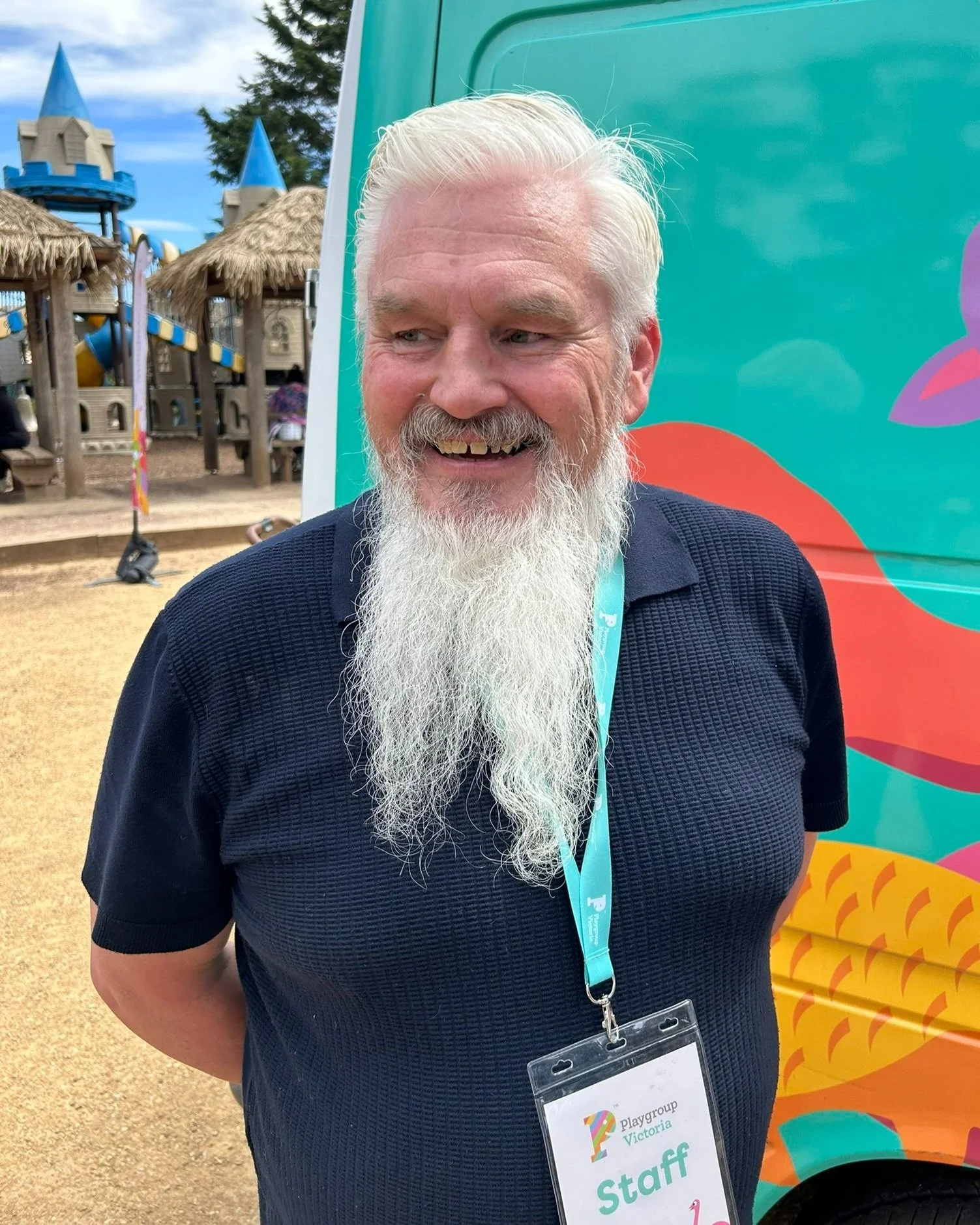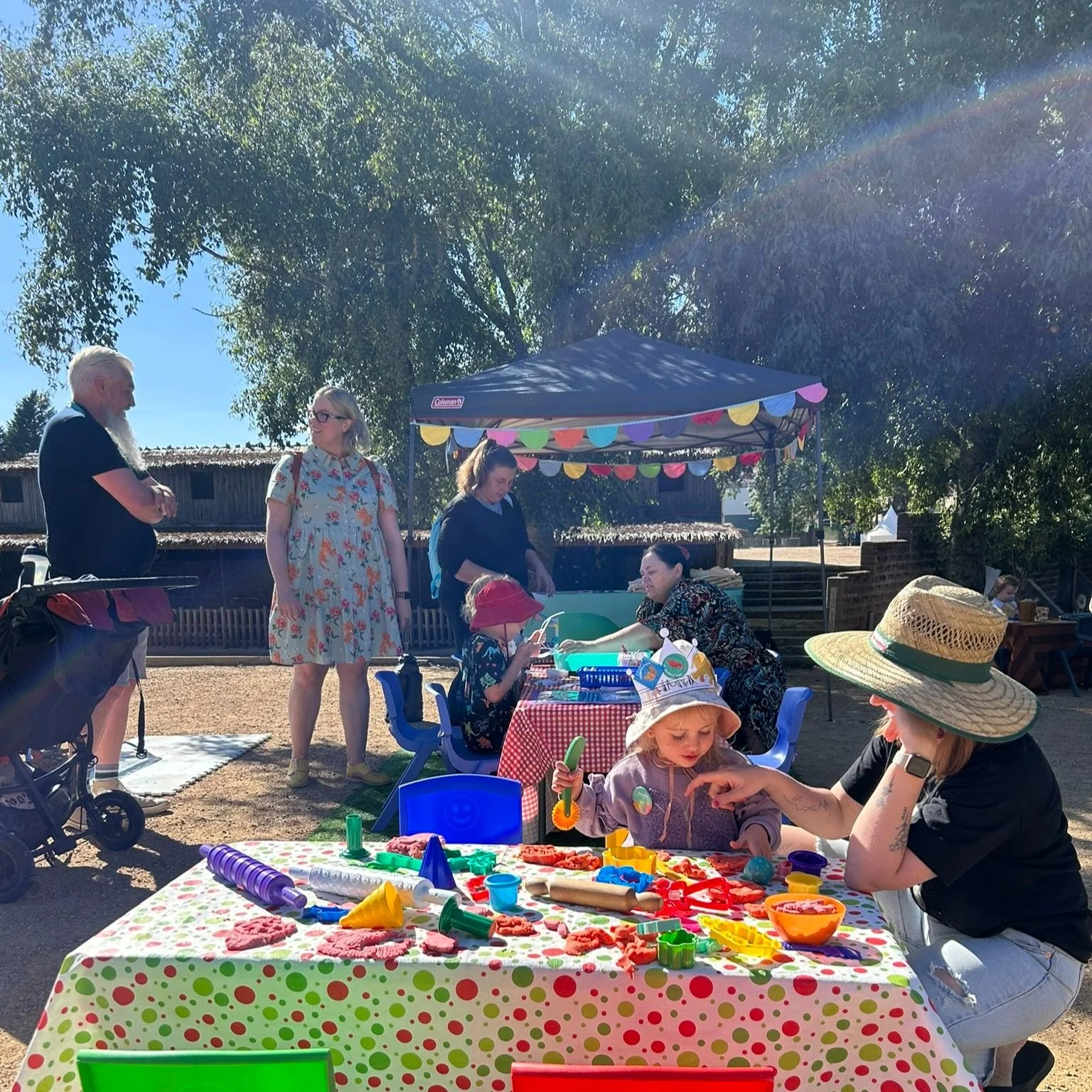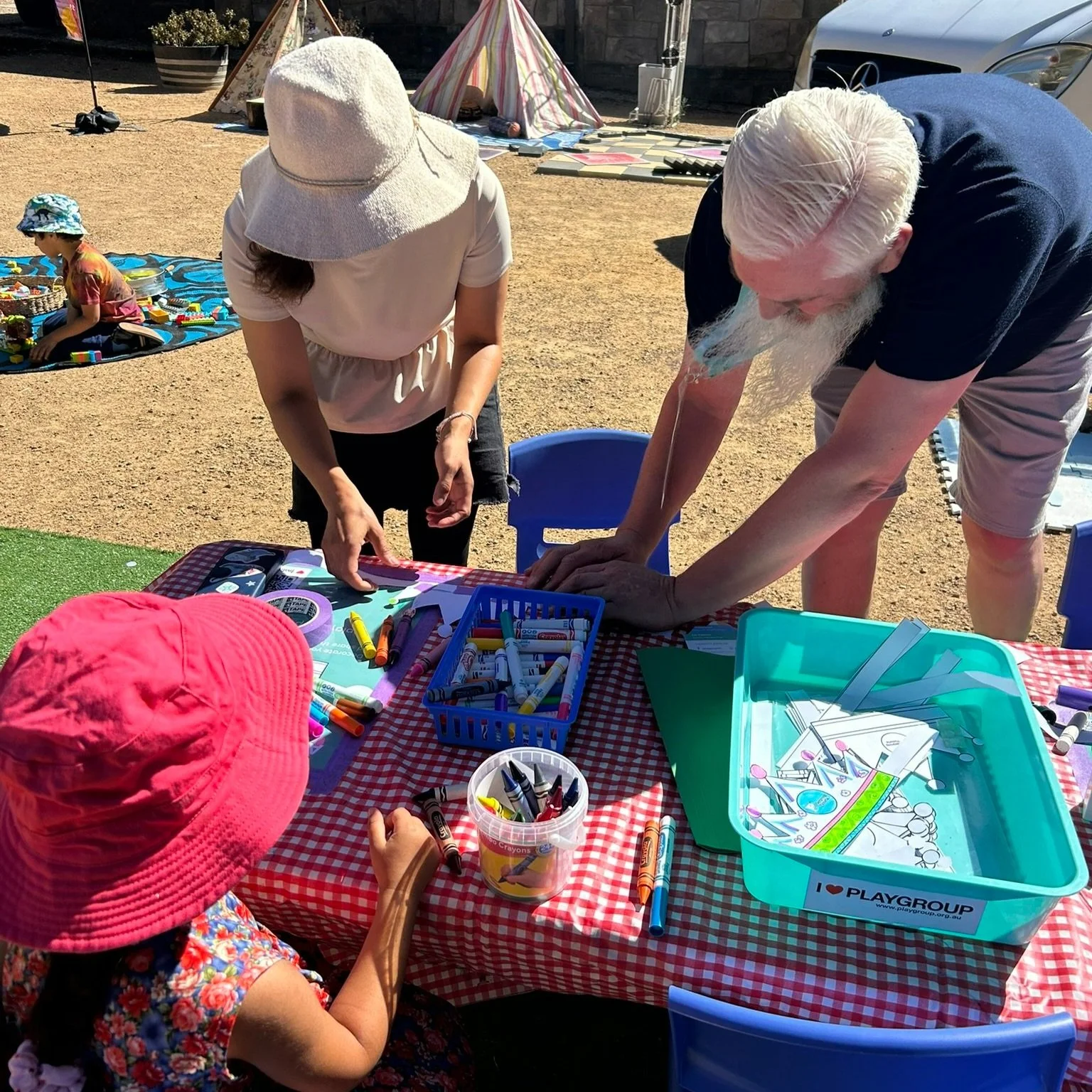Steve Matheson has been working in the early years sector for 21 years, enjoying a variety of different roles. One of his strengths is his ability to connect with families. At a recent play day Steve said, “I feel privileged to be able to do this as my job.”
Steve first began his career as an early childhood educator, then transitioned into teaching early childhood at TAFE where he enjoyed sharing his knowledge and experience with aspiring educators. He broadened his scope further, next coordinating Long Day Care.
Steve spent two years working in Early Intervention with the National Disability Insurance Scheme (NDIS), which “expanded my understanding of support networks and services for children with additional needs.”
Steve has now worked his way back around, connecting directly with families in early years spaces as a Development Advisor at Playgroup Victoria. Steve’s role has a focus on Maternal Child Health and Playgroup in Schools (regional).
We spoke with Steve, learning more about the power of playgroup and why this line of work continues to bring great meaning to his life.
What inspired you to work with playgroups?
I have always been deeply passionate about young children’s learning and development, and I firmly believe that we often underestimate children’s potential. I also recognise that the family is the most important unit within a community, and supporting families as they navigate their journey is both fulfilling and inspiring. The opportunity to assist playgroups and guide families in fostering their children's growth is truly rewarding and aligns with my commitment to nurturing both child and family well-being.
In what ways do playgroups help to create a sense of belonging? In what ways can playgroups create spaces that welcome all families? For example, how can playgroups welcome dads, LGBTIQA+ families, parents and carers of different ages and backgrounds?
Playgroups play a vital role in fostering a sense of belonging for families by creating a safe and inclusive environment for individuals from diverse backgrounds. For many families, playgroups may be their primary point of contact within their weekly routines. A welcoming atmosphere, characterised by warm greetings and open communication, helps families feel valued and respected.
By encouraging families to share their experiences and ensuring they are fully included in all activities, playgroups promote a culture of respect and inclusion. Additionally, the use of inclusive language in communications such as flyers and posters, along with the display of diverse images, books, toys, and resources, further reinforces the celebration of diversity and helps all families feel welcomed and acknowledged.
What wisdom do you hope to pass on to young families?
I truly believe in the importance of taking the time to "stop and smell the roses." Life can often be overwhelming, but it’s crucial to cherish the moments we have, especially as children grow up so quickly. Enjoy those special times together while you can. There is no guidebook for raising children, and it’s important to remember that each child is unique, with their own personality, needs, and pace of development. And above all, never hesitate to reach out for support when you need it.
What is your favourite part about your job?
I feel incredibly fortunate to have the opportunity to work and connect with such inspiring individuals every day, including children, their families, facilitators, support organisations, and the exceptional team at Playgroup Victoria. Contributing, even in a small way, to supporting children, families, and their communities is deeply fulfilling and rewarding.
Connect with Steve Matheson: smatheson@playgroup.org.au
Learn more about Playgroup Development and Support here
Article by Sinead Halliday




